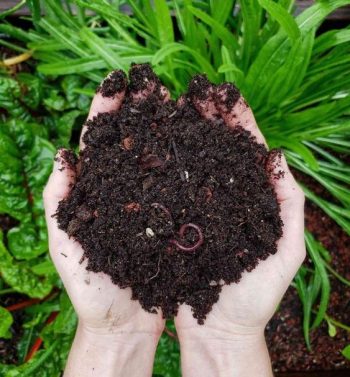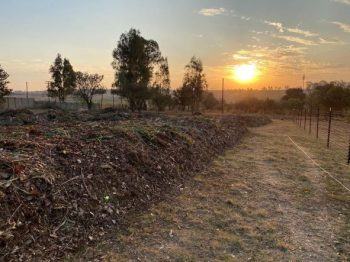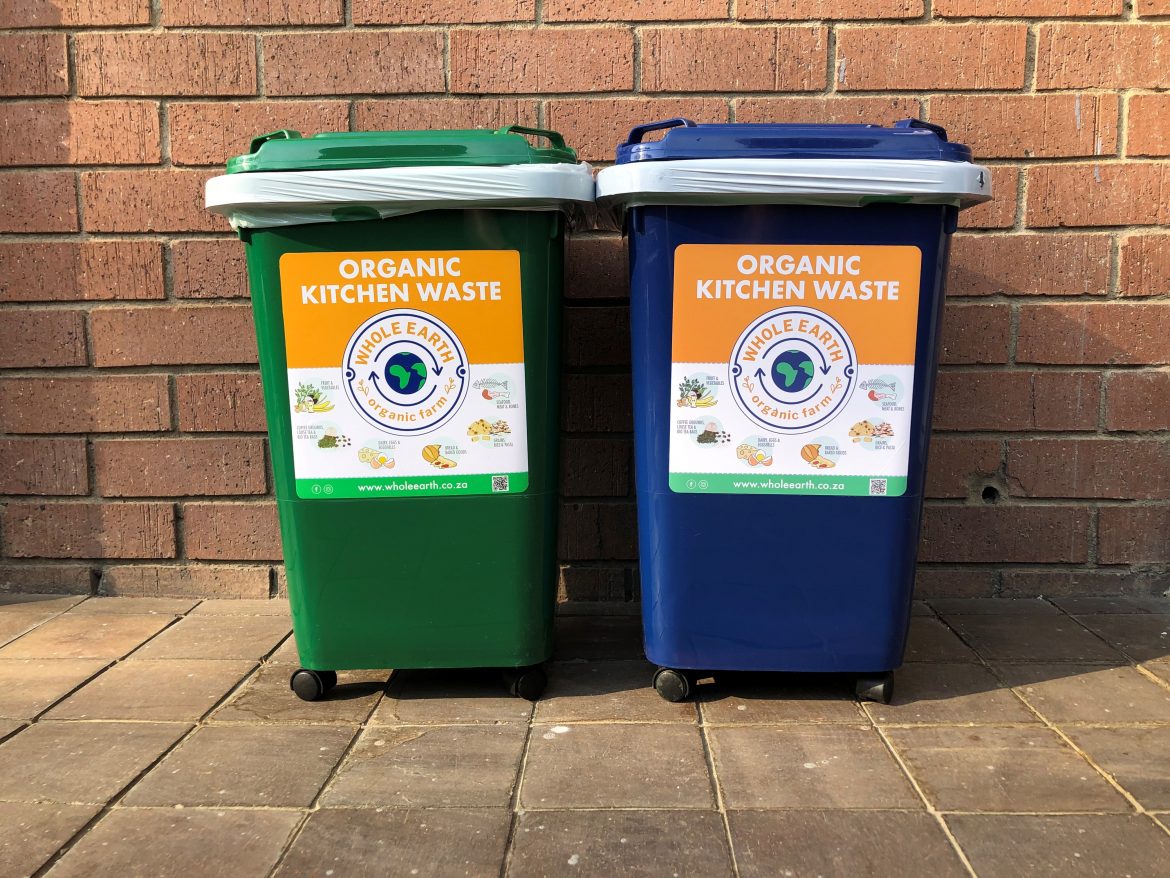How much waste do we generate in SA?
It’s no secret that South Africa is one of the many countries globally, struggling with waste management on a large scale. It’s estimated that SA generates more than 122 million tons of waste a year. Of this, 90% is disposed of in over-capacitated landfill sites and only 10% is recycled.
Almost 40% of this waste that ends up in landfills is organic and biodegradable. Organic food scraps like potato peels, apple cores, eggshells, coffee grounds, loose tea, citrus peels, bread crusts and, yes, all the food that goes funny in your fridge and simply gets “chucked” in the bin, even fish, meat and bones are dumped into landfills.
Why is dumping organic waste in landfills a problem?
When this waste breaks down anaerobically, compressed under the weight of yet more waste, it slowly decomposes and produces methane: a harmful greenhouse gas directly linked to climate change. Beyond the threat of methane, organic waste also creates leachate, a pollutant that can run into local water sources at landfills if not managed properly.
When you throw away organic waste, you lose a lot of nutrients that could be used for compost and soil fertilisation. Instead of the waste returning back the Earth, where it belongs, it becomes waste that’s wasted.
What’s the solution?
A local company responsible for recycling over 120 tons of recyclable waste every month, Whole Earth Recycling, has made a real notion towards change with their latest service. The company have launched an innovative curbside food waste collection service called Whole Earth Organic Farm, which turns your kitchen scraps into compost.
Whole Earth Organic Farm collects your organic food waste weekly. At month-end, you receive it right back as a bag of nutrient-rich compost to feed your garden, herbs or pot plants.

Pinterest / homesteadandchill
Carmen Jordaan, Co-Founder of Whole Earth Organic Farm, says: “While home composting is an essential and impactful habit, it’s difficult and intimidating to do it alone. In addition to not knowing where or how to start, many people who want to compost their organic waste at home have the practical constraints of living in a small space; as well as concerns over it being messy, smelly, difficult to manage and attracting unwanted guests such as rats!”

Whole Earth Food Farm
How do I get involved?
Think about it. You can help reduce the amount of organic waste being dumped in landfills, and you get a bag of nutrient dense plant food in return. Being an eco-warrior has never been simpler. Currently available and rolling out to certain suburbs in Johannesburg. Whole Earth Organic Farm hopes to extend this new, exciting, much-needed offering to more areas, and possibly nationwide, in the near future. If you’d like to find out more about the new organic kitchen waste collection and composting service, visit their website.
ALSO SEE:
Two local women cultivate a community garden from littered municipal land
Feature image: Whole Earth Food Farm

